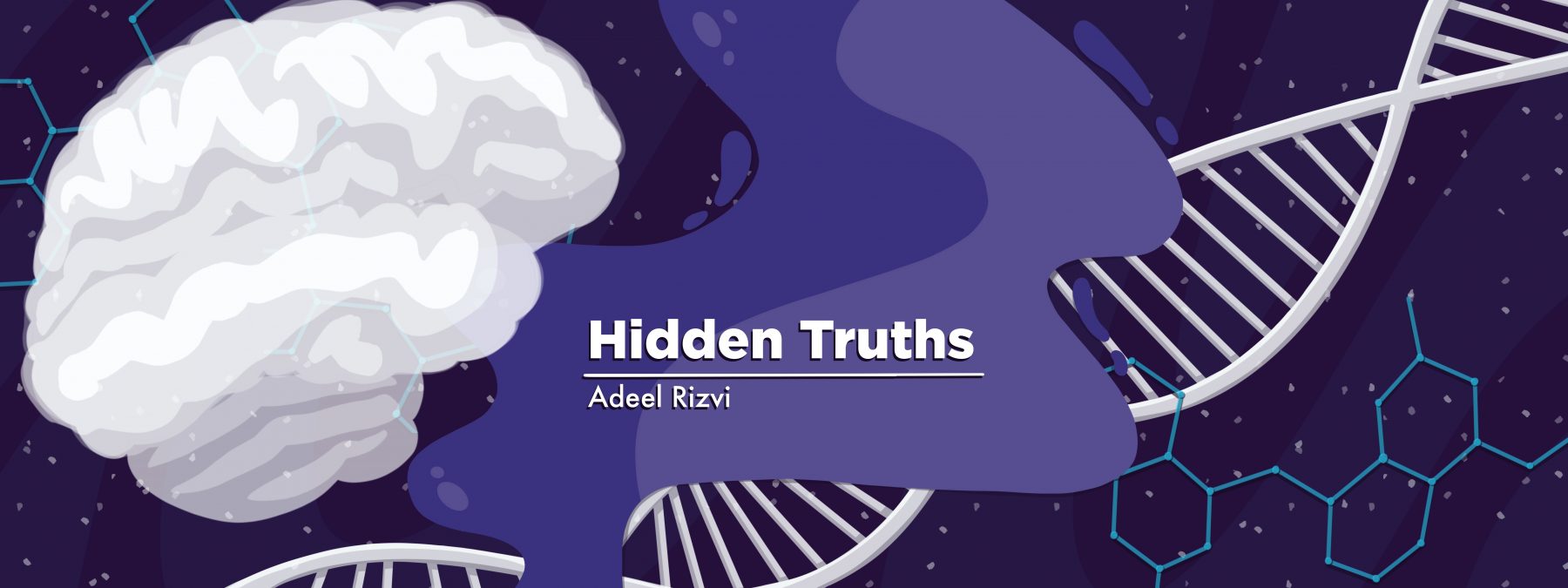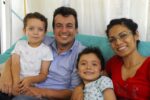Growing Up With Muscular Dystrophy
Written by |

Welcome back to “Hidden Truths.” Over the past two weeks, I’ve had several meaningful discussions about what it means to have a neuromuscular disorder. Accordingly, this week I wanted to get a bit more personal and answer a question brought up by a friend: “How did it feel growing up not knowing you had muscular dystrophy?”
When I first heard this question, I honestly didn’t know how to react. I first thought, “I don’t know, I am me, and I grew up as myself.” But as I thought more about the question, several thoughts and emotions entered my mind.
All in all, I am thankful for growing up how I did and with whom I did, for if I didn’t, I wouldn’t be me.
Formative events
I was born in Pakistan and spent the first five years of my life there. I don’t recall much about that time, but my mother always reminds me about two events.
The first is that my walking was delayed, and she and my aunts would spend a lot of time praying and massaging my legs, hoping they would wake up and work. Eventually, I was able to walk shortly before my younger sister was born almost two years later, just two days before my second birthday.
The second event occurred months after my sister was born. To keep it short, I accidentally ingested a substantial amount of kerosene. In Pakistan, we had a lot of power outages and kept several kerosene lamps. Being a new walker, I was highly inquisitive, and subsequently found, opened, and drank a bottle. I ended up receiving a total of 36 injections of who knows what to my stomach every two hours to dilute the chemical. Spoiler alert: I made it, again, after a lot of prayers.
The reason I bring up these stories is to show how family and religion have shaped my being. If something doesn’t go the way you want it, ask God to help while doing what you can to change the situation.
I will give you the example I have been given: Let’s say you have an upcoming test and you haven’t studied. You can pray to God for help, but you won’t pass it unless you show initiative and study. Another example: You can pray to win the lottery, but you can’t win unless you buy a ticket.
As I mentioned in a previous column, I was a clumsy kid, a “motor moron,” so to speak. Whenever I couldn’t perform a task, while I may have been frustrated, I was told it might be a residual effect from the kerosene I accidentally drank. I lived with this explanation and thought I was different until I moved away for graduate school. (I genuinely believe a loving family is both a gift and a curse.)
After learning more about anatomy and how the body should work — the key word being should — I recognized that the multitude of conditions or symptoms I reported throughout my life couldn’t be explained by kerosene alone. Instead, there was definitely an underlying condition that had caused elevated liver enzymes, retinal detachment, and muscular weakness, to name a few.
It should be noted that I grew up in a community where most of my friends’ parents were physicians. So, I had a “normal” childhood in which no one thought I had a neuromuscular condition — I was just a momma’s boy who followed the rules. I couldn’t run fast or play any games that required a lot of coordination, but I was a team player.
Longing to help others
I grew up wanting to be a shaman — a medicine man and priest of all religions. But I also wanted to be a stand-up comedian and doctor.
I wanted to be a medicine man because I greatly disliked people being sick or having any health issues. I wanted to be a religious figure because as I was taught, God is the greatest healer, and I could use the power to help others. And I wanted to be a stand-up comedian because if someone is smiling and laughing, then they are happy, even if only in that moment.
Regardless, I am appreciative of whom and what I have become. I am an educator and a healer (a physical therapist). I chose this profession after I was diagnosed, in order to help others. As I’ve stated before, to truly care is to share information. To be human is to make mistakes. But being a person entails so much more.
Life is what you make of it. It truly is the journey that matters. There may be detours along the way, but the journey is what’s fun.
***
Note: Muscular Dystrophy News is strictly a news and information website about the disease. It does not provide medical advice, diagnosis or treatment. This content is not intended to be a substitute for professional medical advice, diagnosis, or treatment. Always seek the advice of your physician or another qualified health provider with any questions you may have regarding a medical condition. Never disregard professional medical advice or delay in seeking it because of something you have read on this website. The opinions expressed in this column are not those of Muscular Dystrophy News or its parent company, Bionews, and are intended to spark discussion about issues pertaining to muscular dystrophy.






Lolrraine Baldwin
Hello, I had no ides I had FSHMD until i was almost 80 years old. My mother was one of 11 children and I have since found out that I have a lot of cousins with this disability. I evidently got this from my Mother even though she didn't have it. No one in my family was aware of this until later in life. And it seems that it has affected us in different ways, but we are all trying to cope with it.
Adeel Rizvi
Thank you for your comment Lolrraine. We all have different backgrounds that, as we get older, become nothing more than mere stories. But it is these stories and how we react to them that makes us unique. For example, I am the first in the family to be diagnosed with a neuromusculoskeletal disorder, but my sister has Alport's syndrome, which causes kidney failure and hearing loss. As I like to say, it is what it is. Just know that you have accomplished a lot in your life - how many people have you affected? If anything, you have changed my life with your post, and I appreciate that. Thank you for sharing.